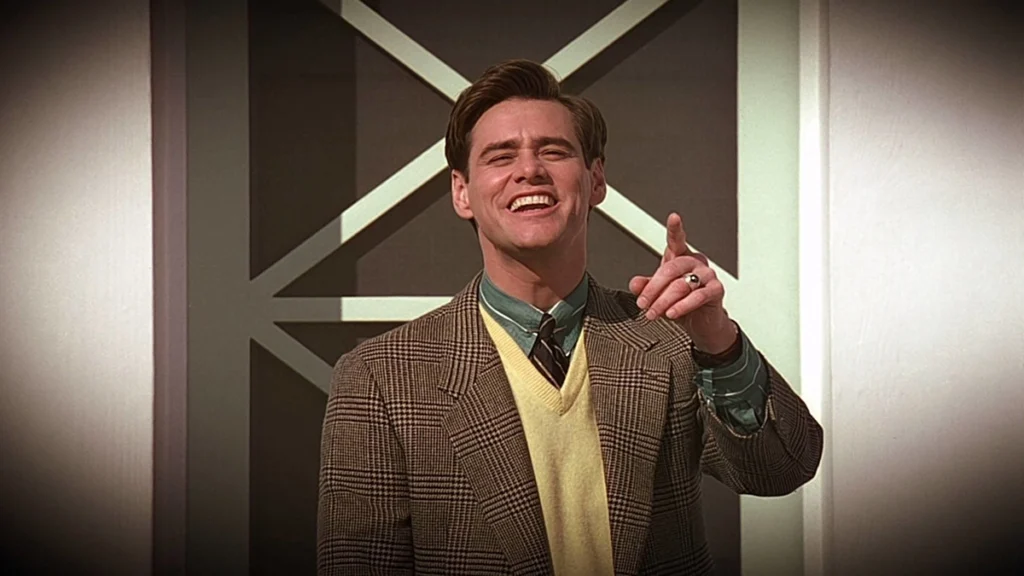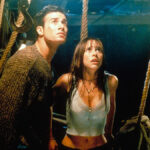The Truman Show, starring Jim Carrey in one of his most iconic roles, is a thought-provoking film that explores the nature of reality, free will, and the power of media manipulation. Released in 1998, the movie follows Truman Burbank, a man who unknowingly lives in a constructed reality television show, where his every move is broadcast to millions of viewers worldwide. As Truman begins to question the authenticity of his life, he embarks on a journey of self-discovery and ultimately seeks to break free from the fabricated world that has been created for him.
If you enjoyed the philosophical themes and mind-bending concepts presented in The Truman Show, here are 15 other movies that delve into similar territory, challenging your perception of reality and leaving you questioning the world around you.
1. Inception (2010)
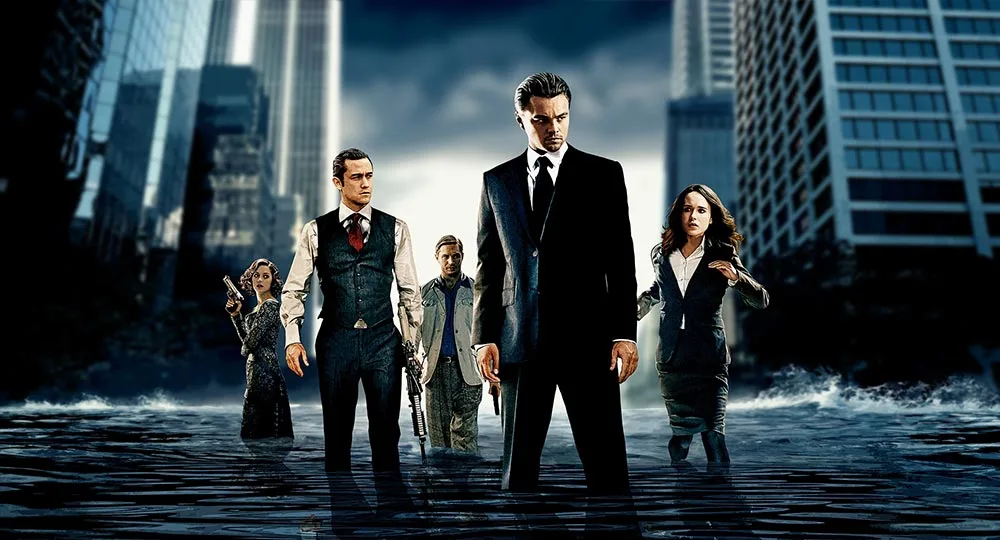
Directed by Christopher Nolan, Inception is a science fiction heist film that takes place within the subconscious minds of its characters. Leonardo DiCaprio stars as Cobb, a skilled thief who has the rare ability to enter people’s dreams and steal their secrets. When he is offered a chance to regain his old life as payment for a task considered to be impossible: “inception”, the implantation of another person’s idea into a target’s subconscious, Cobb and his team of specialists find themselves in a treacherous world where the lines between reality and dreams become increasingly blurred.
Inception shares similarities with The Truman Show in its exploration of constructed realities and the manipulation of one’s perception. The film’s intricate plot, stunning visuals, and outstanding performances make it a must-watch for fans of mind-bending cinema.
2. Eternal Sunshine of the Spotless Mind (2004)

Eternal Sunshine of the Spotless Mind, directed by Michel Gondry and written by Charlie Kaufman, tells the story of Joel (Jim Carrey) and Clementine (Kate Winslet), a couple who undergo a procedure to erase each other from their memories after their relationship turns sour. As Joel’s memories begin to disappear, he realizes that he still loves Clementine and desperately tries to hold onto the remnants of their time together.
Like The Truman Show, this film delves into the nature of memory and identity, questioning the authenticity of one’s experiences and the role that our memories play in shaping who we are. Jim Carrey delivers a heartfelt and nuanced performance, showcasing his dramatic range and proving once again that he is more than just a comedic actor.
3. The Matrix (1999)

The Matrix, directed by the Wachowski siblings, is a groundbreaking science fiction film that follows Thomas Anderson (Keanu Reeves), a computer programmer who discovers that the world he lives in is actually a simulated reality created by machines to keep humans under control. When he is contacted by the mysterious Morpheus (Laurence Fishburne), Anderson, now known as Neo, must choose between accepting the harsh truth of reality or remaining in the comfortable illusion of the Matrix.
The Matrix shares thematic similarities with The Truman Show, as both films explore the concept of a fabricated reality and the protagonist’s journey to break free from the confines of their constructed world. With its innovative special effects, thought-provoking storyline, and iconic action sequences, The Matrix has become a classic of the science fiction genre.
4. Pleasantville (1998)

Pleasantville, directed by Gary Ross, is a fantasy comedy-drama that follows teenage siblings David (Tobey Maguire) and Jennifer (Reese Witherspoon) as they are transported into the black-and-white world of a 1950s television sitcom. As the siblings introduce modern ideas and values to the seemingly perfect town of Pleasantville, the residents begin to experience changes in their worldview, with colors gradually appearing in the monochromatic landscape.
Like The Truman Show, Pleasantville uses the backdrop of a constructed reality to explore themes of conformity, individuality, and the power of change. The film’s clever use of color as a metaphor for personal growth and societal transformation makes it a visually striking and thought-provoking watch.
5. Stranger Than Fiction (2006)
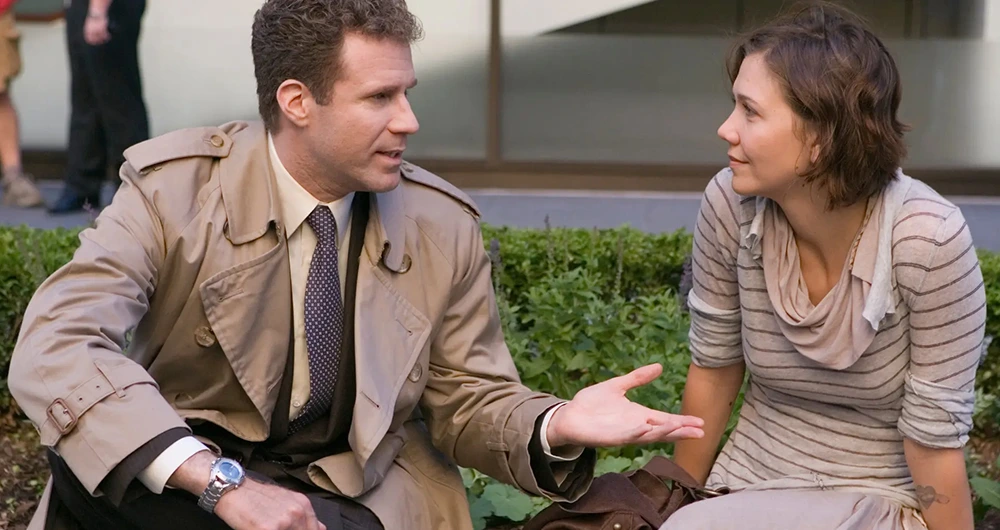
Stranger Than Fiction, directed by Marc Forster, stars Will Ferrell as Harold Crick, an IRS auditor who suddenly begins hearing a female voice narrating his life. When the voice reveals that Harold’s death is imminent, he seeks help from a literature professor (Dustin Hoffman) to uncover the mystery behind the narration and potentially change his fate.
Similar to The Truman Show, Stranger Than Fiction explores the idea of a protagonist whose life is controlled by an external force, blurring the lines between fiction and reality. Will Ferrell delivers a surprisingly understated and heartfelt performance, proving his versatility as an actor.
6. The Game (1997)

Directed by David Fincher, The Game stars Michael Douglas as Nicholas Van Orton, a wealthy investment banker who receives an unusual birthday gift from his estranged brother (Sean Penn): a voucher for a mysterious “game” that promises to change his life. As Nicholas becomes increasingly entangled in the game’s elaborate and dangerous scenarios, he begins to question the nature of his reality and the motives of those around him.
The Game shares similarities with The Truman Show in its exploration of a constructed reality designed to manipulate the protagonist’s perceptions and emotions. Fincher’s masterful direction and the film’s twisting plot keep viewers on the edge of their seats, constantly questioning what is real and what is part of the game.
7. Vanilla Sky (2001)

Vanilla Sky, directed by Cameron Crowe and starring Tom Cruise, is a science fiction psychological thriller that follows David Aames (Cruise), a wealthy and charismatic publishing executive whose life takes a tragic turn after a car accident leaves him disfigured. As David struggles to piece together the fragments of his memories and distinguish between reality and dreams, he becomes entangled in a web of love, betrayal, and existential questioning.
Like The Truman Show, Vanilla Sky delves into the nature of reality and the power of the mind to shape one’s experiences. The film’s surreal visuals, non-linear narrative, and thought-provoking themes make it a compelling watch for fans of psychological thrillers.
8. Dark City (1998)

Dark City, directed by Alex Proyas, is a neo-noir science fiction film that takes place in a dystopian city where the sun never rises. The story follows John Murdoch (Rufus Sewell), a man who wakes up with no memory of his past and finds himself pursued by mysterious figures known as the Strangers. As John uncovers the truth about the city and its inhabitants, he discovers that reality is not what it seems and that the Strangers possess the power to alter the city and its residents’ memories.
Dark City shares thematic similarities with The Truman Show, exploring the concept of a manipulated reality and the struggle for individuality in the face of oppressive forces. The film’s stunning visuals, haunting atmosphere, and philosophical underpinnings make it a must-watch for fans of thought-provoking science fiction.
9. The Thirteenth Floor (1999)

The Thirteenth Floor, directed by Josef Rusnak, is a science fiction neo-noir film that explores the concept of simulated realities. The story follows Douglas Hall (Craig Bierko), a computer scientist who becomes embroiled in a murder mystery that spans multiple layers of reality. As Douglas investigates the crime, he begins to question the nature of his own existence and the boundaries between the real world and the virtual.
Like The Truman Show, The Thirteenth Floor delves into the idea of constructed realities and the blurring of lines between what is real and what is simulated. The film’s intricate plot, stylish visuals, and philosophical themes make it an engaging watch for fans of mind-bending science fiction.
10. eXistenZ (1999)

Directed by David Cronenberg, eXistenZ is a science fiction body horror film that takes place in a near-future world where virtual reality gaming has reached new heights of immersion. The story follows Allegra Geller (Jennifer Jason Leigh), a renowned game designer who becomes the target of assassins after the release of her latest VR game, eXistenZ. As Allegra and her bodyguard, Ted Pikul (Jude Law), navigate the dangerous world of the game, they begin to question the nature of reality and the boundaries between the virtual and the real.
eXistenZ shares similarities with The Truman Show in its exploration of the blurring lines between reality and fiction, and the potential consequences of becoming too immersed in a constructed world. Cronenberg’s signature blend of body horror and philosophical themes make this film a unique and thought-provoking entry in the science fiction genre.
11. The Island (2005)

The Island, directed by Michael Bay, is a science fiction action film that takes place in a seemingly utopian facility where clones are raised to believe they are the last survivors of a global contamination. The story follows Lincoln Six Echo (Ewan McGregor) and Jordan Two Delta (Scarlett Johansson) as they discover the truth about their existence and attempt to escape the facility and expose the sinister reality behind their world.
Like The Truman Show, The Island explores the concept of a fabricated reality designed to keep its inhabitants complacent and unaware of the truth. While the film is more action-oriented than The Truman Show, it still raises thought-provoking questions about the nature of identity and the ethics of cloning.
12. Synecdoche, New York (2008)

Synecdoche, New York, written and directed by Charlie Kaufman, is a surreal and introspective film that follows theater director Caden Cotard (Philip Seymour Hoffman) as he attempts to create a massive, life-size replica of New York City inside a warehouse. As Caden becomes increasingly absorbed in his ambitious project, the lines between reality and fiction, art and life, begin to blur, leading to a profound exploration of the human condition and the search for meaning in a seemingly absurd world.
While Synecdoche, New York is more abstract and metaphorical than The Truman Show, both films share a fascination with the nature of reality and the ways in which we construct and interpret our own experiences. Kaufman’s trademark blend of humor, pathos, and existential questioning make this film a challenging but rewarding watch for fans of mind-bending cinema.
13. The Congress (2013)
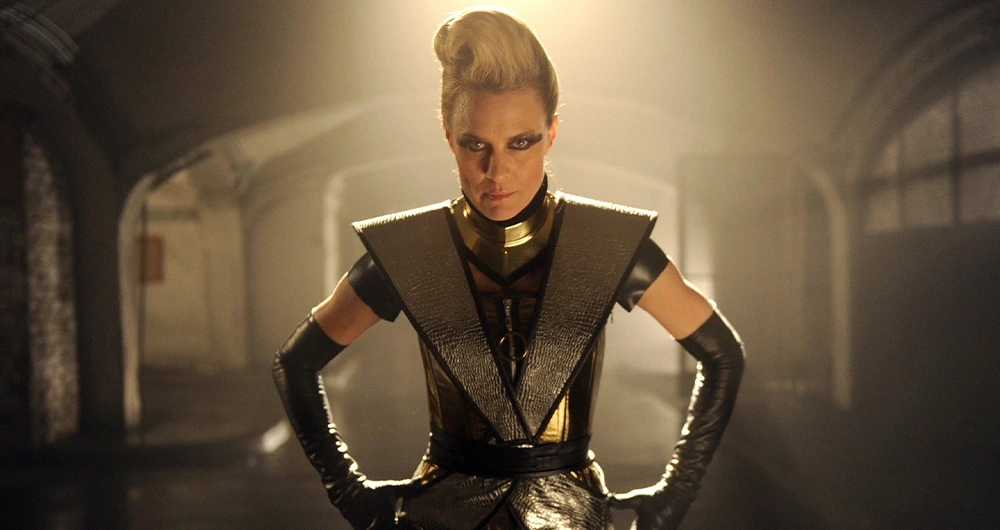
The Congress, directed by Ari Folman, is a science fiction film that combines live-action and animation to tell the story of Robin Wright (playing a fictionalized version of herself), an aging actress who agrees to have her digital likeness preserved for future use in films. As Robin navigates the surreal world of the “Futurological Congress,” where people can transform themselves into animated avatars and live in a virtual reality, she begins to question the nature of identity and the consequences of blurring the lines between the real and the artificial.
Like The Truman Show, The Congress explores the impact of technology and media on our perception of reality and the potential dangers of losing touch with our authentic selves. The film’s unique visual style and thought-provoking themes make it a standout entry in the science fiction genre.
14. Black Mirror: Bandersnatch (2018)
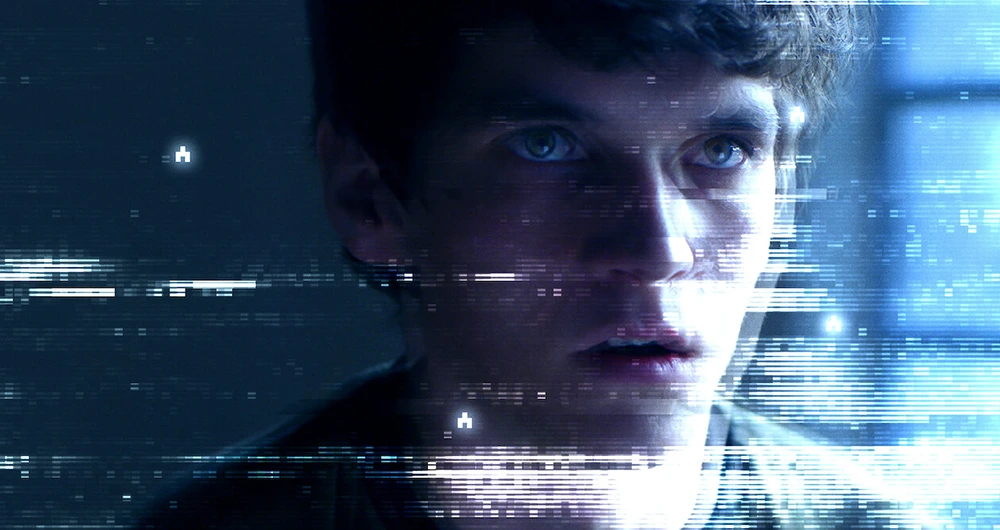
Black Mirror: Bandersnatch is an interactive film that allows viewers to make choices that affect the story’s outcome. Set in 1984, the film follows Stefan (Fionn Whitehead), a young programmer who adapts a choose-your-own-adventure novel into a video game. As Stefan becomes increasingly obsessed with the project, he begins to question the nature of free will and the boundaries between reality and fiction.
While Bandersnatch is not a traditional film like The Truman Show, it shares similar themes of constructed realities and the illusion of choice. The interactive format of the film adds an extra layer of meta-commentary on the nature of storytelling and the role of the audience in shaping the narrative.
15. Westworld (2016-2022)
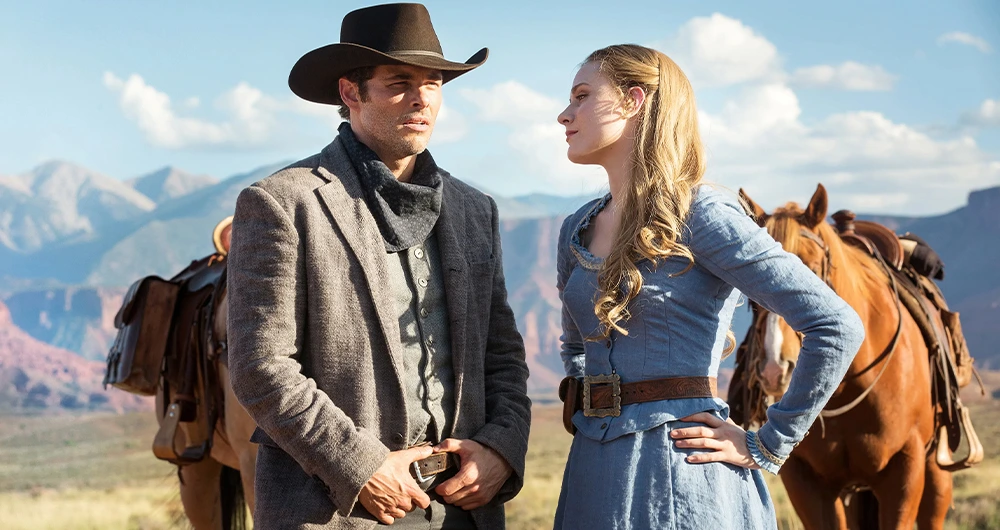
Westworld is a science fiction television series created by Jonathan Nolan and Lisa Joy, based on the 1973 film of the same name. The show takes place in a technologically advanced Wild West-themed amusement park populated by android “hosts” who cater to the desires of wealthy human “guests.” As the hosts begin to gain consciousness and question the nature of their reality, the lines between the artificial and the real become increasingly blurred, leading to a complex exploration of identity, free will, and the consequences of playing God.
While Westworld is a television series rather than a film, it shares many thematic similarities with The Truman Show, particularly in its examination of constructed realities and the struggle for authenticity in a world where the boundaries between the real and the artificial are constantly shifting. With its stunning visuals, intricate storytelling, and outstanding performances, Westworld is a must-watch for fans of thought-provoking science fiction.
The Truman Show remains a landmark film in the exploration of constructed realities, free will, and the power of media manipulation. The 15 movies and television series listed above offer similar mind-bending experiences, each in their own unique way. From the dream-heists of Inception to the surreal world of Synecdoche, New York, these films challenge our perceptions of reality and invite us to question the world around us. Whether you’re a fan of science fiction, psychological thrillers, or existential dramas, these thought-provoking works of cinema are sure to leave a lasting impression and keep you pondering long after the credits roll.
